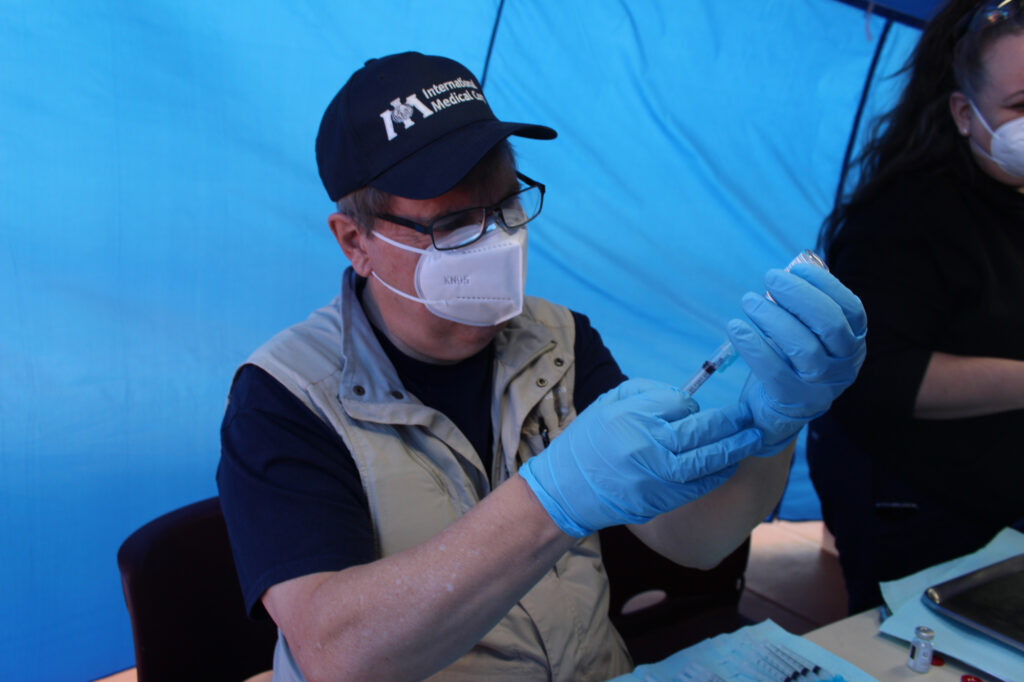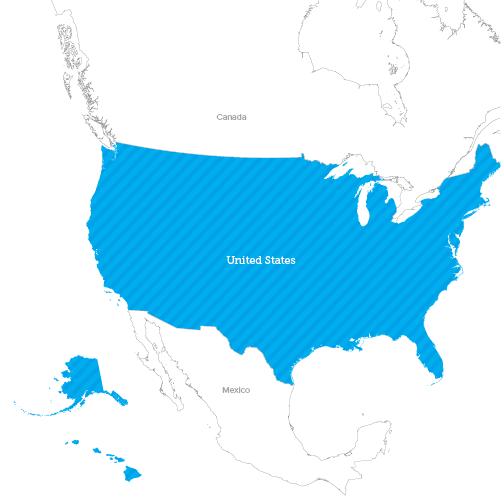
United States & Territories
International Medical Corps has been active in the US & Territories since 2005, initially responding to devastation caused by Hurricane Katrina in New Orleans. Today, we collaborate with national, state and local partners to support emergency responses, identify gaps in the health system and support community-driven solutions to challenges brought on by natural disasters, public health crises and outbreaks of disease, helping to increase access to healthcare in underserved communities.
In 2024, the US & Territories experienced 27 weather-related disasters that each incurred damage costs of more than $1 billion, for a total of more $182.7 billion. The increasing frequency and severity of extreme weather, including heat, is a major threat to the health and well-being of underserved communities. When combined with the challenges presented by infectious disease, these events have revealed significant gaps in the US health system and help to highlight the disproportionate impact of emergencies on underserved and vulnerable communities in the US & Territories.

342 million
39 years
76/81 years
male/female
The Challenges
Our Work
Emergency Preparedness, Response and Recovery
International Medical Corps has been an emergency responder in the United States since 2005, when we partnered with community clinics in New Orleans overwhelmed after Hurricane Katrina Today, we work throughout the US to support communities—especially underserved communities—as they recover from the immediate shock of a disaster and as they rebuild over the long term.
When disasters disrupt normal life, International Medical Corps responds—deploying medical teams, equipment and supplies, as well as mobile health units, when needed.
We partner with state and federal responders and collaborate with local health facilities and organisations, helping to fill gaps in available healthcare services, deliver urgently needed supplies and ensure access to healthcare in times of crisis.
And after an emergency, we remain committed to helping health facilities and local organizations build back better—providing training and capacity-building to support emergency preparedness efforts in the event of a future crisis.
Training
Across the US & Territories, International Medical Corps designs, hosts and conducts robust training courses designed to help health facilities prepare for and respond to health crises and disasters in their communities, enabling residents to be their own best first responders. International Medical Corps offers a suite of training programmes that help executive, clinical and operational staff identify hazards and mitigate potential impacts—enabling them to stay operational in the aftermath of a crisis, test emergency-preparedness plans and provide the best quality of care in a range of emergency scenarios. For example, since January 2023 International Medical Corps has delivered training programmes to more than 50 health facilities and networks in at-risk communities nationwide.
Our US Partnerships
We strengthen existing health systems, rather than setting up parallel pathways to care. This approach is key to our effectiveness and to local communities’ recovery. Over the past seven years alone, International Medical Corps has worked with partner networks of more than 275 hospitals, clinics, health-related facilities and NGOs across 18 states and territories, supporting more than 6 million patients and healthcare providers.
International Medical Corps collaborates with more than 100 local, state and national partners to enhance our efforts in the US & Territories, including:
- federally qualified health centre associations and primary care associations, such as the California Primary Care Association, Community Clinic Association of Los Angeles County, the Florida Association of Community Health Centers, North Carolina Community Health Center Association, the Texas Association of Community Health Centers and more;
- state departments of health and emergency management, including the California Department of Health, the California Emergency Medical Services Authority and the Florida Department of Health, Florida Division of Emergency Management, among others;
- emergency responders, such as California Emergency Medical Services, National Voluntary Organizations Active in Disaster (NVOAD), Louisiana VOAD and Puerto Rico VOAD; and
academic partners, including Brown University, Harvard Humanitarian Initiative, Johns Hopkins Bloomberg School of Public Health and Stanford University.
Hurricane Response in the United States
Since 2005, International Medical Corps has responded to nearly 10 hurricanes in the United States & Territories, including the following.
2024: Hurricane Milton | Hurricane Helene | Hurricane Beryl
2022: Hurricane Ian | Hurricane Fiona
2019: Hurricane Dorian
2018: Hurricane Michael | Hurricane Florence
2017: Hurricanes Maria and Irma